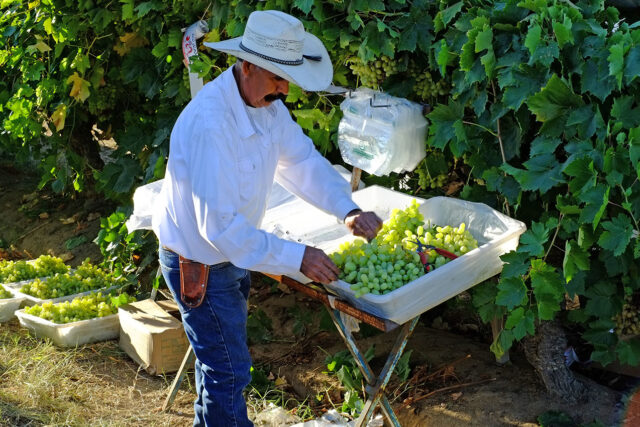COVID-19 has forced many of us to find creative ways of working together while sheltering in place. For California’s new groundwater sustainability agencies (GSAs), that means bringing together diverse groups of stakeholders in virtual forums to develop and implement state-mandated groundwater sustainability plans. We talked to Dave Ceppos—who, as managing senior mediator at Sacramento State’s Consensus and Collaboration Program, is working with many GSAs—about how the pandemic is affecting the complex public outreach process required by the Sustainable Groundwater Management Act (SGMA).
 PPIC: Talk about how the pandemic lockdown is affecting the groundwater sustainability planning process.
PPIC: Talk about how the pandemic lockdown is affecting the groundwater sustainability planning process.
DAVE CEPPOS: Unlike other public engagement laws and regulations, SGMA requires a dialogue between a GSA’s leadership and affected stakeholders. Planning and decision making need to take into account not only technical information about local groundwater basins, but also social information about water uses and needs. The GSAs have to show they’ve gotten input from water users, and that they’ve considered the impacts of their decisions on the local community. These conversations are hard and nuanced—basically, the GSAs are new regulatory agencies, the groundwater gods for their local area, and that’s a big change. Sheltering in place has made these complex conversations harder. I think GSAs are just getting their heads around the magnitude of the work they have to do under these new conditions, but they are rising rapidly to the challenge.
PPIC: How is the GSA community responding to limitations on public gatherings?
DC: In the past three weeks we’ve seen a pause in some places—the postponement of meetings that were coming up too fast to reconfigure to an online format, for example. But generally, work is continuing, and they’re taking it very seriously. My staff has already done probably six virtual SGMA public meetings. In the basins where plans are still under development, there is an outlying question about a possible need for an extension beyond the January 2022 deadline if the lockdown continues for a significant period of time, but for now it’s business as usual.
The governor’s recent executive orders relaxing some rules about how public meetings are held have been extraordinarily helpful—without them our work would be almost impossible. Meetings are continuing virtually. The agencies we’re working with are fully committed on publicizing meetings and putting out public messaging, but they’re not being hamstrung by Brown Act requirements about having to hold meetings in public places.
PPIC: SGMA involves many players from diverse groups, living in rural areas that may not have adequate online infrastructure for virtual participation. What’s being done to ensure that public participation is inclusive and fair?
DC: Every GSA that I know of is doing their best in terms of their obligation and their commitment to actively engage with the public. That said, not everyone has access to the internet. Not everyone can get information online, or can print agenda packets, which can be mammoth. We have farmers who attend midday meetings by calling in from their trucks—they can’t toggle through those packages or watch an online Powerpoint presentation from their phones. This is a daunting process involving a lot of complex information.
The reality is that even before this current crisis, our society had moved to a digital world that has left some people behind. In conversations we’re having with agencies, there’s typically an immediate rush to the online tools with the most bells and whistles. But for a facilitator, the first question we ask is, “what do we need to accomplish in a particular meeting?” Then we try to find the tools and methods to do that. To facilitate SGMA dialogues, we know that some people call in and can’t use online resources. We seek to create equity in virtual discussions by toggling back and forth between people in the virtual room and those sitting in trucks and kitchens who need to weigh in over the phone. When it comes to fostering inclusive dialogue, it’s not the bells and whistles that do it—it’s structuring meetings and using facilitation methods to make sure equity is maintained.
This is a challenging time, but we will get through it. Facilitators call it “change management,” which is all about helping people through a new condition by setting new expectations and behaviors. The good news is we humans are excellent at this, and we’re doing it already. Whether we need to manage this change for six weeks or six months, we’ll prevail and continue with this important work.




